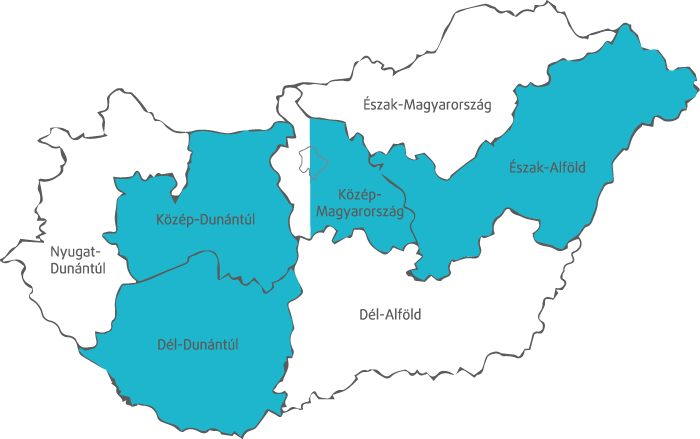Klímaválasz project
Klímaválasz (Climate Response) Project
Energiaklub conducted a one-year project to enable the leaders of Hungarian municipalities to adapt to the inevitable impacts of climate change.
Over 140 local government officials and other stakeholders were trained in the project in measures and opportunities related to municipal climate adaptation in four regions: Southern Transdanubia, Central Transdanubia, Northern Great Plain and the Eastern half of Central Hungary.
Timeframe: May 2015 - April 2016
Introduction:
Hungary has developed a climate strategy, however, on adaptation it remains rather general in scope, lacking to provide information available for potential local impacts. Loval-level awareness of climate change and vulnerability remains at a basic level, and ways of adaptation are not well known either.
Thus, there is urgent need for capacity building and information sharing amongst local authorities.
Target:
The overall goal of the project was to create a better understanding of climate change impacts among local decision makers and stakeholders. The project provided a good basis for exploring adaptation options and strengthen climate resilience by assessing community vulnerabilities.
Target group: municipalities and other local stakeholders (e.g. NGOs)
Description:
In the course of the project Energiaklub assessed the knowledge and needs of local municipal leaders related to climate adaptation, and what residents experience from the impacts of climate change (details).
Based on the above a complex training material was developed that provides up-to-date information and knowledge as well as specific assistance to municipality leaders to adapt to the inevitable and continuously increasing impacts of climate change, so that they can identify the necessary measures and integrate them into local planning processes and regulations. Contents of the training (video lectures, presentations, etc.) are available only in Hungarian in the Tudástár menu.
Participants had personal multiple-day training sessions (in groups) in 8 instalments (3 in Budapest and 5 in other areas) in the first quarter of 2016. The objectives of the training were the following:
- The target group should learn about the most important processes and expected consequences of climate change
- Participants should become familiar with tools, examples and best practices that enable them to better prepare (assess vulnerability) for and manage local impacts of climate change (reduce vulnerability)
- The target group should enhance and develop their personal and interpersonal skills through which they can inform, convince and activate (involve) the local population in local actions (communications, partnership building, motivational, conflict handling, etc.)
The design and contents of the training:
1. training day: climate change in Hungary, basic concepts (exposure, sensibility, adaptation capacity, vulnerability, flexibility); demonstrating an adaptation process based on international best practices; possibilities of assessing vulnerability on a municipal level
2. training day: strategy preparation – theoretical fundamentals, stakeholder analysis, study trip in the region, case study analysis together, partnership building
3. thematic on-line training videos (urban climate adaptation, buildings, water and green infrastructure management, adaptation through regulatory opportunities), online training materials (calls for tenders in the near future),
4. homework (online): completion of the municipal vulnerability assessment, selecting a topic (a vulnerable area), reviewing best practices in the selected area, developing a list of adaptation measures to a selected vulnerability area
5. training day: expert open-space to address issues emerging in the course of remote learning, communications (educating the population and crisis communications)
6. training day: preparation of an adaptation strategy: developing a specific adaptation measure, finalizing, exam: presenting the measure at a simulated municipality forum
143 participants completed the training successfully, bringing the information on adaptation to almost 100 Hungarian municipalities. The total population of municipalities where the local government is now ready for action to mitigate the impacts of climate change is over 1,600,000 people (further information).
In order to make the contents of this program accessible for the target group of the entire country, we presented the thematic background and the most important information at 4 regional adaptation conferences in april 2016 (in the white-coloured regions of the map below).
The project’s closing conference was open to the press, and had over 100 participants.
The project's geographical area of intervention (blue):

The project was supported by Iceland, Liechtenstein and Norway.